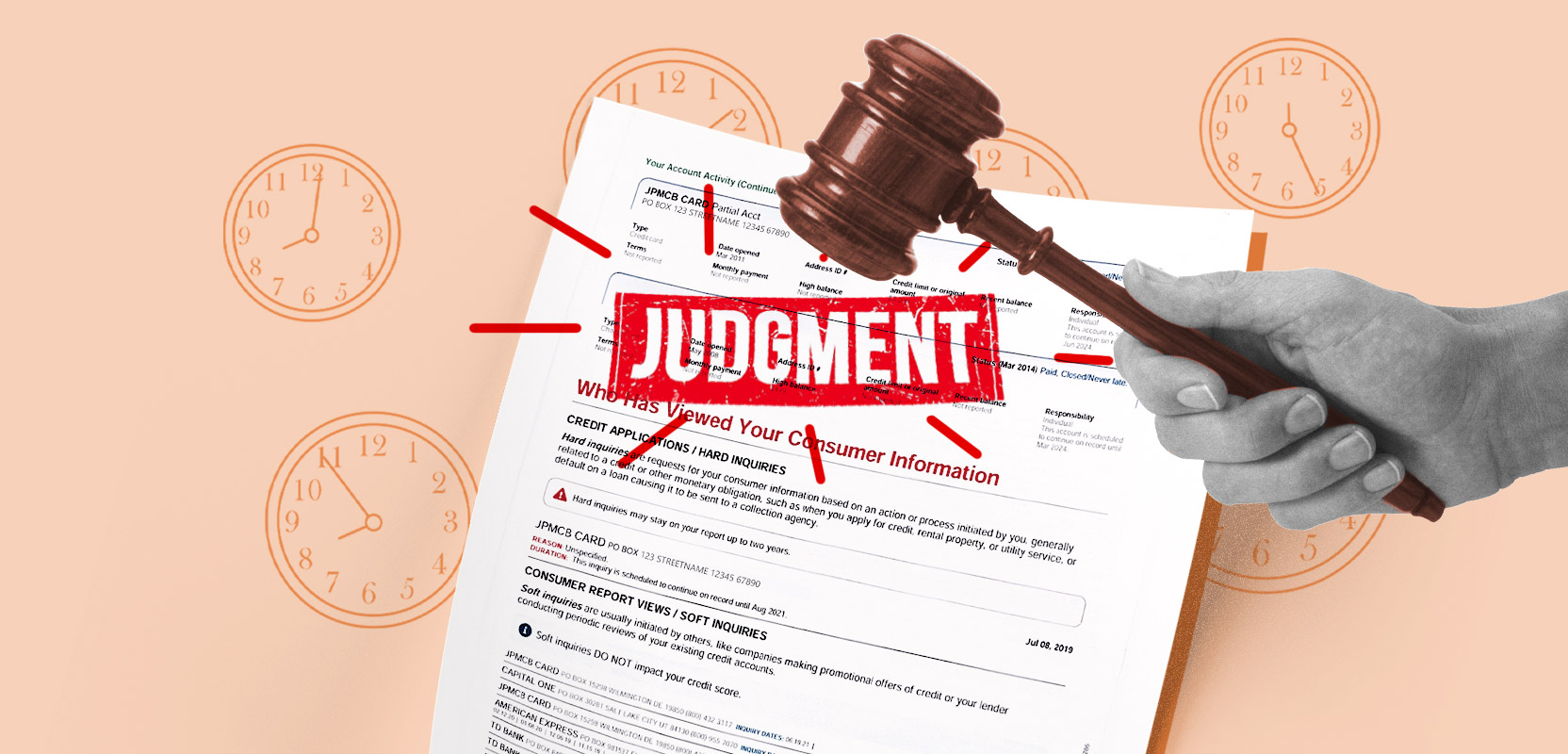Home>Finance>How Long Does Credit Inquiry Stay On Experian Report


Finance
How Long Does Credit Inquiry Stay On Experian Report
Published: March 4, 2024
Learn how long a credit inquiry stays on your Experian report and its impact on your finance. Find out how to manage credit inquiries effectively.
(Many of the links in this article redirect to a specific reviewed product. Your purchase of these products through affiliate links helps to generate commission for LiveWell, at no extra cost. Learn more)
Table of Contents
Introduction
Welcome to the world of credit reports and inquiries! If you’ve ever applied for a credit card, loan, or mortgage, you may be familiar with the concept of a credit inquiry. Understanding the impact of credit inquiries on your credit report is crucial for maintaining a healthy credit score. In this comprehensive guide, we’ll delve into the intricacies of credit inquiries, particularly focusing on how long they stay on your Experian report, why they’re important, and how they can affect your overall creditworthiness.
Whether you’re a seasoned credit aficionado or just dipping your toes into the vast ocean of personal finance, this article will provide valuable insights into the world of credit inquiries. We’ll explore the duration for which credit inquiries linger on your Experian report, shed light on the factors influencing their presence, and offer practical tips for managing and, if necessary, removing them from your report.
So, grab a cup of coffee, get comfortable, and let’s embark on a journey to unravel the mysteries of credit inquiries and their impact on your financial well-being. By the end of this guide, you’ll be equipped with the knowledge and tools to navigate the complex landscape of credit reports with confidence and clarity.
What is a Credit Inquiry?
Before delving into the specifics of credit inquiries on your Experian report, it’s essential to understand what a credit inquiry actually is. In the realm of personal finance, a credit inquiry, also commonly referred to as a credit check or credit pull, occurs when a lender, creditor, or authorized party requests to view your credit report and score.
There are two primary types of credit inquiries: hard inquiries and soft inquiries. A hard inquiry typically takes place when you apply for a new line of credit, such as a credit card, auto loan, mortgage, or personal loan. These inquiries are initiated with your explicit consent and are used by lenders to assess your creditworthiness and make informed decisions regarding your application.
On the other hand, soft inquiries occur when a person or entity checks your credit report for reasons other than a credit application. This could include background checks, pre-approved credit offers, or even when you check your own credit report. Importantly, soft inquiries do not impact your credit score, while hard inquiries can have a temporary effect on your score.
Credit inquiries are a vital aspect of the lending process, as they provide lenders with valuable insights into your borrowing history and financial behavior. However, it’s crucial to be mindful of the frequency and timing of credit inquiries, as excessive hard inquiries within a short timeframe can raise red flags to potential lenders and may negatively impact your credit score.
Now that we’ve established the fundamentals of credit inquiries, let’s explore the specific details surrounding their presence on your Experian credit report and the implications they carry.
How Long Does a Credit Inquiry Stay on an Experian Report?
When you apply for credit, the resulting hard inquiry typically remains on your Experian credit report for two years. This means that for 24 months following the inquiry, it will be visible to any entity that reviews your credit report. It’s important to note that while the inquiry itself may appear on your report for two years, its impact on your credit score diminishes over time.
It’s crucial to distinguish between the presence of a credit inquiry on your report and its influence on your credit score. While the inquiry may be visible for two years, its impact on your score is most significant in the first few months after it occurs. Over time, as the inquiry ages, its effect on your credit score gradually diminishes, and after the initial few months, its impact becomes minimal.
It’s worth mentioning that when you check your own credit report or when a lender conducts a soft inquiry, these do not have any impact on your credit score and are not visible to potential lenders reviewing your credit report. Soft inquiries are used for informational purposes and do not affect your creditworthiness in the same way that hard inquiries do.
Understanding the lifespan of credit inquiries on your Experian report is essential for managing your credit profile effectively. By being aware of the duration for which inquiries remain visible and impactful, you can make informed decisions about applying for new credit and strategically managing your credit utilization and borrowing activities.
Why Does a Credit Inquiry Stay on Your Experian Report?
The presence of a credit inquiry on your Experian report serves as a crucial component of your credit history and provides valuable insights to potential lenders and creditors. When a lender reviews your credit report, they can see the list of entities that have requested to view your credit history, offering them a glimpse into your recent credit-seeking activities.
From a lender’s perspective, the visibility of credit inquiries on your report allows them to assess your recent credit behavior and the frequency of your credit applications. This information aids them in evaluating your creditworthiness and assessing the level of risk associated with extending credit to you. By understanding your recent borrowing activities, lenders can make more informed decisions when considering your credit applications.
Furthermore, the presence of credit inquiries on your Experian report contributes to transparency and accountability in the lending process. It enables lenders to gauge the level of credit-related activity in your financial life, providing them with a comprehensive view of your recent interactions with potential creditors. This transparency is essential for maintaining the integrity and reliability of the credit assessment process, benefiting both lenders and consumers alike.
While the visibility of credit inquiries on your report may seem daunting, it’s important to recognize that their impact diminishes over time. As credit inquiries age, their influence on your credit score wanes, and after the initial few months, their significance becomes minimal. This gradual decline in impact allows for a fair and balanced representation of your credit behavior, ensuring that past credit inquiries do not unduly overshadow your current financial standing.
Ultimately, the presence of credit inquiries on your Experian report serves as a mechanism for lenders to gain insights into your recent credit-related activities, enabling them to make informed decisions when assessing your creditworthiness. Understanding the rationale behind the inclusion of credit inquiries on your report empowers you to navigate the credit landscape with greater awareness and strategic intent.
How Does a Credit Inquiry Affect Your Credit Score?
When a hard credit inquiry is initiated, it can have a temporary impact on your credit score. The exact effect of a single inquiry can vary depending on your overall credit history and financial profile. Typically, a single hard inquiry may result in a minor and temporary decrease in your credit score, usually by a few points. However, the impact of a single inquiry is generally minimal compared to other factors that contribute to your credit score, such as payment history and credit utilization.
It’s important to note that the impact of a credit inquiry on your credit score is most significant in the first few months after it occurs. During this period, the inquiry may slightly lower your score as it indicates recent credit-seeking behavior. However, as time passes, the influence of the inquiry diminishes, and after approximately one year, its effect becomes negligible.
It’s essential to approach credit inquiries strategically, especially if you’re planning to apply for major credit, such as a mortgage or auto loan. Multiple hard inquiries within a short timeframe can raise concerns for potential lenders, signaling a higher level of risk due to increased credit-seeking activity. This can potentially lead to more substantial impacts on your credit score and may affect your ability to secure favorable terms for new credit.
On the other hand, soft inquiries, which occur when you check your own credit report or when a lender conducts a background check, do not impact your credit score in any way. These inquiries are used for informational purposes and are not factored into credit score calculations, providing you with the freedom to review your credit report without affecting your creditworthiness.
By understanding the dynamics of credit inquiries and their influence on your credit score, you can make informed decisions regarding new credit applications and manage your credit profile strategically. While credit inquiries play a role in the credit assessment process, their impact is temporary, and proactive credit management can mitigate any potential effects on your overall creditworthiness.
How to Remove a Credit Inquiry from Your Experian Report
Removing a legitimate hard credit inquiry from your Experian report can be a challenging endeavor, as credit bureaus typically do not remove accurate and verifiable information from credit reports. However, there are certain scenarios in which you may have grounds to request the removal of an unauthorized or erroneous inquiry:
- Unauthorized Inquiries: If you believe that a hard inquiry was initiated without your consent or authorization, you have the right to dispute its presence on your credit report. You can file a dispute with Experian, providing any supporting documentation that substantiates your claim of unauthorized access to your credit information.
- Erroneous Inquiries: In the event that you identify an inaccurate hard inquiry on your Experian report, such as a duplicate inquiry or an entry resulting from a clerical error, you can file a dispute to have it investigated and potentially removed from your report.
When disputing a credit inquiry with Experian, it’s essential to provide as much detail and evidence as possible to support your claim. This may include correspondence with the party that initiated the inquiry, proof of identity theft or fraud, or any documentation that validates your assertion of an erroneous or unauthorized inquiry.
It’s important to approach the process of disputing credit inquiries with diligence and patience, as the investigation and resolution may take time. Experian will typically conduct an investigation into the disputed inquiry, reaching out to the entity that initiated the inquiry to verify its legitimacy. If the inquiry is found to be unauthorized or erroneous, Experian will remove it from your credit report, thereby eliminating its impact on your credit score.
While the removal of legitimate credit inquiries from your Experian report can be challenging, exercising your right to dispute unauthorized or inaccurate inquiries is essential for maintaining the accuracy and integrity of your credit history. By staying vigilant and proactive in monitoring your credit report, you can address any discrepancies and safeguard the reliability of your credit profile.
Conclusion
Credit inquiries play a pivotal role in the credit assessment process, offering lenders insights into your recent credit-seeking activities and financial behavior. Understanding the nuances of credit inquiries, including their lifespan on your Experian report and their impact on your credit score, is essential for navigating the complex landscape of personal finance with confidence and knowledge.
As we’ve explored, credit inquiries, particularly hard inquiries, typically remain on your Experian report for two years. While their presence may initially impact your credit score, their influence diminishes over time, highlighting the transient nature of their effect. Soft inquiries, on the other hand, do not impact your credit score and are used for informational purposes, providing you with the freedom to review your credit report without affecting your creditworthiness.
Furthermore, the visibility of credit inquiries on your report serves as a mechanism for lenders to assess your recent credit-related activities, contributing to transparency and accountability in the lending process. By recognizing the rationale behind the inclusion of credit inquiries on your report, you can approach credit management and new credit applications with informed intent.
In the event that you encounter unauthorized or erroneous inquiries on your Experian report, exercising your right to dispute them is crucial for maintaining the accuracy and integrity of your credit history. While the process of disputing credit inquiries may require diligence and patience, it empowers you to address discrepancies and safeguard the reliability of your credit profile.
Ultimately, by understanding the dynamics of credit inquiries, their impact, and the avenues for addressing inaccuracies, you can proactively manage your credit profile and make informed decisions regarding new credit applications. Armed with this knowledge, you are better equipped to navigate the intricacies of credit reports and inquiries, fostering a stronger financial foundation and a clearer path towards your financial goals.














